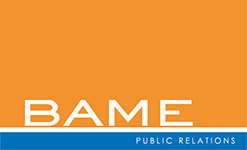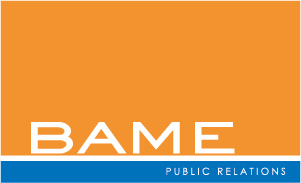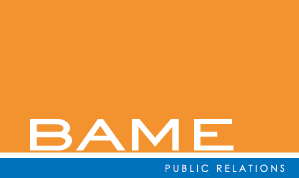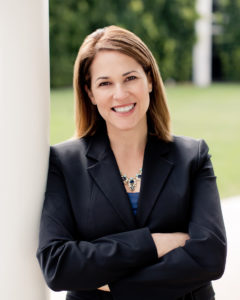The Accidental Journalist: How Blogging Turned into a Journalism Gig
Jonathan Handel, an entertainment attorney in Los Angeles wrote about his experience as a blo”er and now a journalist. He gave me permission to post this article which originally appeared on MuckRack.
“I appreciate your fair coverage of the Writers Guild strike,” read the short email I received almost seven years ago. This was gratifying, but also startling, because I wasn’t covering anything. That’s what reporters do, and I wasn’t one. I was an entertainment/technology attorney who was just doing some blogging.
Well, actually, a lot of blogging. I was posting every other day.
A lot of it was original, in-depth analysis, but I didn’t equate that with reporting. I’d also become an oft-quoted interview subject on the strike and other entertainment law and business subjects, but I knew that didn’t make me a journalist.
And yet, there it was: my “fair coverage.” It was certainly true that I was trying to be fair. But the “coverage” part remained a puzzle.
A few months later, a newspaper reporter who’d been quoting me with regularity abruptly stopped. When I rather inappropriately asked why, his answer was immediate: “because you’re a competitor now.”
And he was right, since my blog was being read by key leaders throughout the industry and I was occasionally breaking stories. I was still a lawyer and blogger, but had somehow lost my amateur standing.
My journey towards journalism had begun almost imperceptibly in early 2007 when my law firm, TroyGould, engaged a PR firm to get us in the press and attract more business. The publicist, Cheryl Bame, began to find me placements on various websites and also persuaded me to start blogging.
By mid-year, negotiations between the Hollywood studio alliance and the screenwriters union – the Writers Guild – were in the news as discussions began to founder primarily on the rocks of the Internet. Even back in 2007, new media business models were beginning to outrun the barnacle-encrusted collective bargaining agreements that govern Hollywood labor relations.
Since my law practice encompassed new media and I had once worked at the Guild, albeit a decade and a half earlier, Cheryl audaciously positioned me as an expert and set up a lunch with Variety. I wasn’t so confident, but after reacquainting myself with the details of the nearly incomprehensible 400-page union agreement, I realized I now knew more about the contractual disagreements than almost anyone except the partisans themselves.
The meeting with Variety went well, and to my surprise I began to get quoted. I reached out to other media and found willing ears at almost every outlet. And I discovered I had a talent for soundbites.
Into the Spotlight
In November, the writers’ negotiations collapsed and a bitter strike began. The story was white hot, and it was easy for me to find the journalists on the beat, because the Guild and the studio alliance had each posted clipping files on their websites. They’d also posted their contract demands – pages of legalese like this, replete with references to reruns, residuals, receipts, ringtones and things like “Article 13.B.5.a.(8)” – pretty much anything that started with an “R” or sounded like it, as Lewis Carroll might have observed.
It all made sense to pretty much no one except those trained in the field – which I was. Few others were, and none of them were talking, save occasionally for the partisans on both sides. I steered a middle course, and soon an avalanche of outlets began to contact me, for background as well as quotes.
I found myself sometimes doing six interviews a day, one day even an NPR phoner from the aisle of a Southwest jet. My inboxes overflowed with journalists. Even my blog got on TV. It was wonderful insanity.
Meanwhile, the Huffington Post invited me to blog on their platform, and I somehow found time to write, a lot. Fall turned into winter, and still the writers struck, both in LA, where “winter” is a relative term, and New York, where it isn’t. Actors supported the picket lines and boycotted the January Golden Globes, destroying the ceremony and turning the event into a cut-rate press conference. Globes without glamour presaged the possible fate of the Oscars, and with that deadline looming, both sides blinked and finally reached a deal in February 2008.
After the strike ended came a couple months of relative quiet, and then with growing violence the Screen Actors Guild began to tear itself apart over the same Internet issues that the writers, directors and even another actors union had already settled. A second strike seemingly loomed, though in the end what resulted was more of a lockout. Feature film production slowed to a crawl as the SAG contract expired, and the summer brought doldrums for the movie business.
But not for reporters. With blood once again in the water, the coverage ratcheted back up, and once again I was blogging and getting interviewed while juggling my law practice. BBC phoners from the Cannes Film Festival were fun, as was my Los Angeles Business Journal guest piece, also Cannes-datelined, that led with “Do loose clips sink ships?” – a reference to just one of the many arcana that bedeviled the actor’s union (clip consent, or the right to control the Internet use of short clips of TV shows and movies).
Later I wrote an investigative article, “Inside the SAG Boardroom,” which exposed the shenanigans that ensued during a bizarre 28-hour closed meeting of the Guild’s 80-member board of directors. Weeks later came a suit against the union by its own president. If the writers strike had been a tragedy of poor negotiation, the SAG stalemate was history repeating itself as farce, seemingly without end.
When the discord finally calmed down, in mid-2009, so did my life. I occupied some of my new spare time turning the blog posts into a book, Hollywood on Strike!, and figured that my days in the middle of breaking news were over, at least until the inevitable next Hollywood labor disturbance. That was an event I pegged at six to nine years out, with an eye on the triennial contract cycles of the high-profile writers, actors and directors unions. But I was missing a piece of the puzzle.
Opportunity Knocks
In July 2010 – after a scant year of labor peace – I got a call from Matt Belloni, then an editor (and now executive editor) at The Hollywood Reporter. “We hear that the Teamsters might strike,” Matt said, referring to the truck drivers who move Hollywood equipment and who could shut the town down even more quickly than the writers had. “Do you know anything about that?”
There was something unusual about the call, and not just that another labor disturbance would have required history to do a hat trick. Matt didn’t cover labor, and his question was an oddly open-ended way of beginning an interview. What was up?
“No,” I replied cautiously, drawing out the vowel and ending with something approximating a question mark.
“Do you want to look into it and write about it for us?” Matt asked. I stared at the phone. This was certainly unexpected.
“Does it pay?” I asked. The HuffPo didn’t, of course, but I wasn’t going to be a reporter for free.
“Yes,” Matt answered, “though not as well as being a lawyer.” I could live with that. I’d admired journalists since Woodward and Bernstein.
My first piece on the Teamsters appeared a few days later, top of page one, bumping Leo DiCaprio to what would be below the fold if the 8-1/2′′ x 11′′ format had a fold. I wrote four or five other pieces. A month after the situation resolved – no strike this time – I pitched a different story and wrote several more articles.
Not long after, I was named a contributing editor. I’ve covered labor for THR ever since, as well as various legal and other matters (Hollywood sex abuse lawsuits, the Aereo Supreme Court case, a trip to Mars and more), as my Muck Rack portfolio reflects.
I also freelance – and, in what is no doubt an unusual arrangement, I continue to practice law. Although the time commitments sometimes clash, it works, because I don’t practice in the specific areas that I cover, and because I avoid conflicts of interest in both professions. In fact, being a lawyer has helped me immeasurably with stories and sources, as has my computer science background prior to law school.
Is my journey a snapshot from the future or just an unusual outlier? That’s a story for someone else to write.
Some say blogging will be the end of journalism. Maybe – but for me, at least, it was also the beginning.




